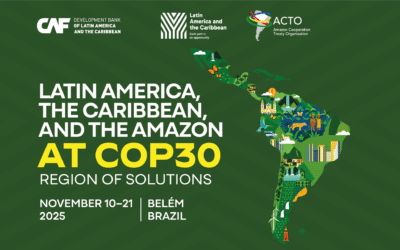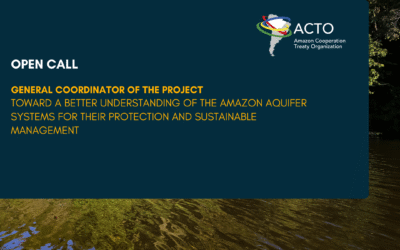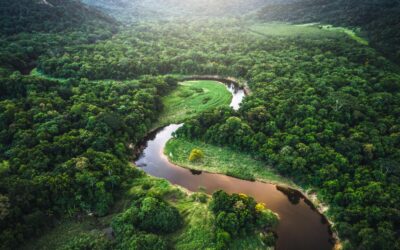The Amazon Cooperation Treaty Organization (ACTO) will be holding the side event “Amazon Regional Forest Cooperation and its Contribution to the Implementation of the United Nations Strategic Plan for Forests 2017-2030 and the Global Forest Goals and Goals”, in the framework of the 17th Session of the United Nations Forum on Forests (UNFF).
This side event aims at presenting the Amazon Region contribution to the United Nations Strategic Plan for Forests 2017-2030, under the new ACTO cooperation instruments, in addition to knowing the challenges and needs to be covered for its implementation.
The Amazon Cooperation Treaty Organization (ACTO) is an intergovernmental organization constituted by the countries Bolivia, Brazil, Colombia, Ecuador, Guyana, Peru, Suriname, and Venezuela, signees of the Amazon Cooperation Treaty (ACT 1978). One fifth of the world’s forest area is located in the territories of these countries, and approximately 70% of that area is in the Amazon Region.
The Amazon forests Amazonian forests are recognized for their importance and crucial role against climate change, and it is also recognized the need to i) face the continuous risks to which they are subjected such as deforestation and degradation, and ii) to promote a sustainable development scheme according to the region’s characteristics and the needs of each country.
Promoting conservation and Sustainable Forest Management (SFM)/Integral and Sustainable Management of Amazonian Forests through coordination, cooperation, and implementation actions among ACTO Member Countries; and develop the necessary capacities to satisfy the new requirements and deadlines of the global Forest and Biodiversity agendas, the Member Countries of ACTO adopted in 2021, two new guiding instruments for long-term regional cooperation and management. These instruments are the Regional Forest Program and the Biological Diversity Program for the Amazon Basin/Region.
Both instruments guide the development and implementation of strategic actions for collaboration and cooperation among the countries to improve forests and biological diversity management in the Amazon Region, as a whole, beyond the national borders of each country.
In addition, its implementation seeks to contribute to the achievement of global goals and objectives in support of international agreements and conventions, in particular, the 2030 Agenda and the Sustainable Development Goals (SDG), United Nations Forum on Forests (UNFF ), Convention on Biological Diversity (CBD), among others.
- SIDE EVENT UNFF17
- Date and time Wednesday, May 11, 2022 (75 minutes)
- TIME: 1: 30p.m. – 2: 45p.m. (New York local time)/ 2:30p.m. – 3: 45p.m. (Brasilia local time)
- Language: Spanish and English
- Information and Preliminary Agenda HERE
- Register HERE












